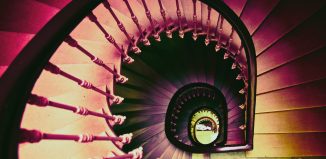George Washington, an unlikely whiskey baron
This past Monday was Presidents Day, and we might have been thinking of our great presidents, if we were thinking of them at all in the midst of a vacation day, as being larger than life. However, in a recent biography of George Washington, Ron Chernow tells us that for all the 8,000 acres of splendid estate and many slaves to work the property, Washington when he retired from the presidency in 1797, was hard up for cash. Financial pressure was “unrelenting.”
I don’t know about you, but to me that makes him a more human founding father, one almost every business person and resident can identify with. So what did the father of our country do? He looked around his farmland for a new profit source, one that would supply cash rather quickly, and came up with the idea of making whiskey.
It was not, The New York Times tells us in a recent article, his idea alone. His new plantation manager, James Anderson, was a Scotsman and distiller. Mount Vernon had plenty of rye and together with what Washington called “Indian corn” and a still, they were able to make ample supplies of whiskey.
Now this is not how we usually think of our first president, the guy who chopped down the cherry tree and the president who sent militiamen to quash the Whiskey Rebellion in western Pennsylvania when local distillers revolted against a federally imposed whiskey tax. Washington was aware of his image problem but, entrepreneur that he needed to be, he became something of a whiskey baron. In the first full year of operation, almost 11,000 gallons were produced and the whiskey earned a profit equivalent to some $142,000 in today’s dollars. A distillery was built that was one of the largest of the time. Washington blamed his new success on Anderson, unwilling to take personal credit. The distillery was rebuilt after tours of Mount Vernon began and can be viewed by the many visitors to the estate each year. The old recipe is still used when samples are handed out.
Washington did enjoy alcohol, favoring “sweet wines, rum punch and whiskey,” but his reputation for alcohol in moderation was established by his stern action toward his troops when they became drunk and his reluctance to pass out drinks when he ran the first time for election to the Virginia House of Burgesses. His opponent did and duly won. A quick study, Washington did so the next time he ran, and this time he was successful.
Unfortunately for Washington, he was not able to realize a growing success from his whiskey efforts. In 1799, the second full year of production, he died at the age of 67. He willed the distillery to a granddaughter of his wife Martha, but a fire destroyed the operation in 1814.
Only relatively recently has this chapter in Washington’s life become widely known, and it adds a colorful dimension to the man and his myth.






